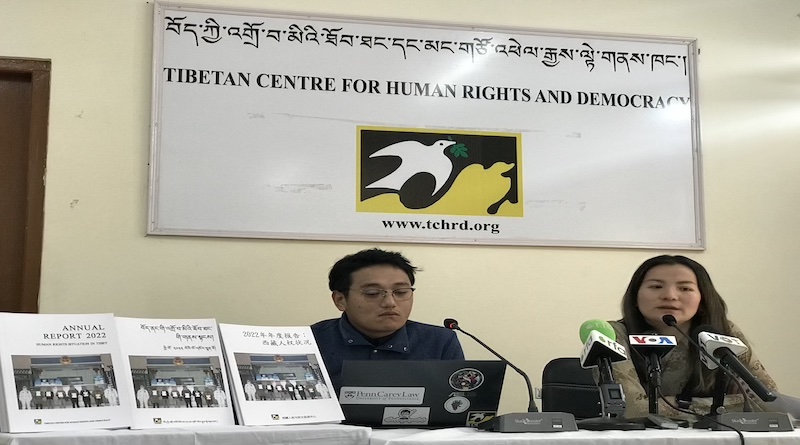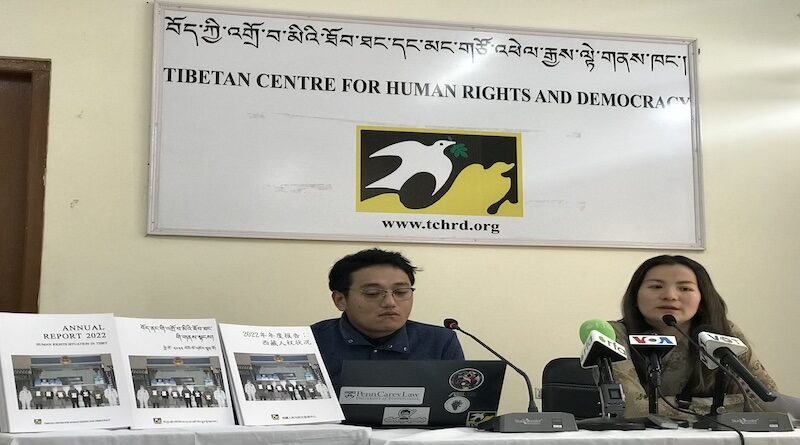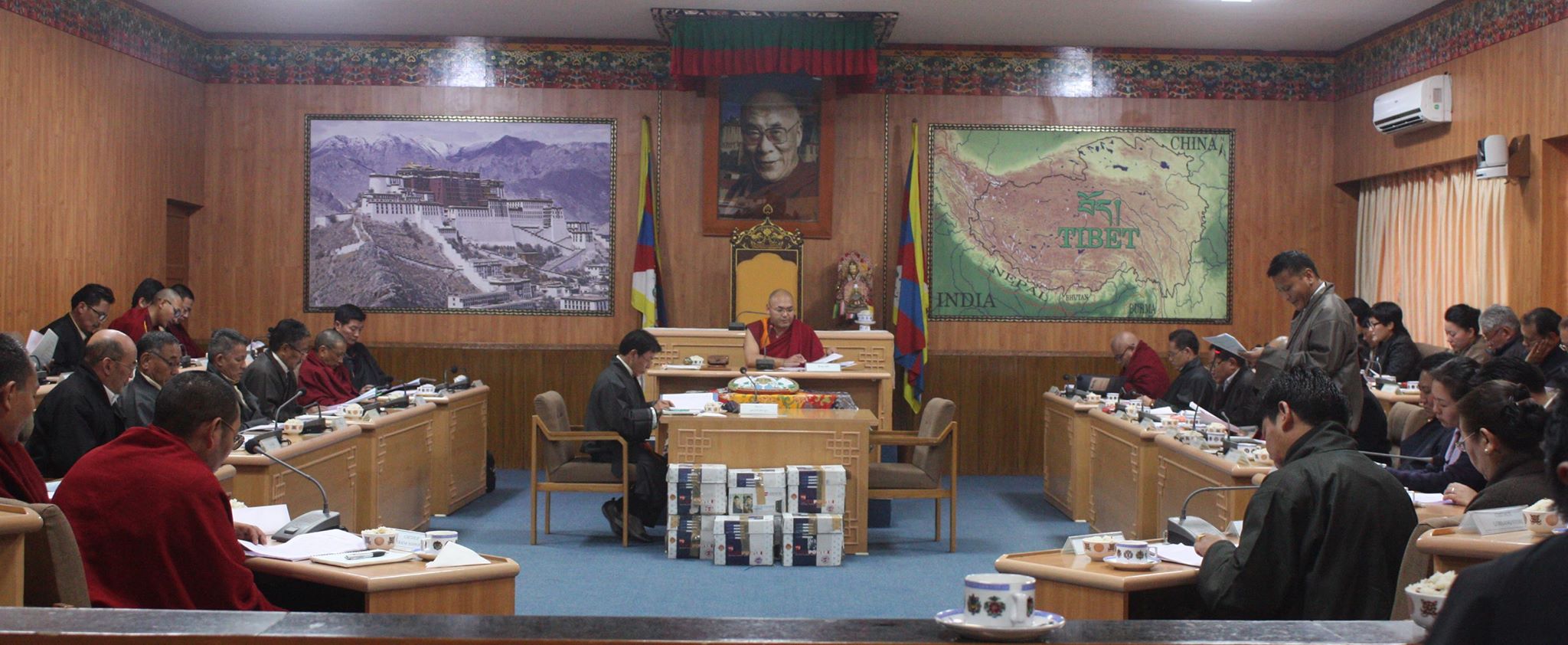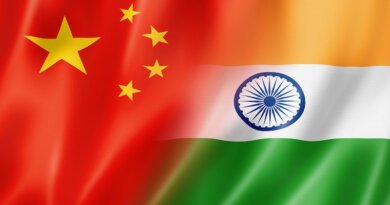Human rights situation in Tibet worst in recent years: TCHRD Annual report

DHARAMSALA, 28 March: Human rights situation in Tibet in 2022 has been one of the worst in recent years, says the Tibetan Centre for Human Rights and Democracy (TCHRD) said as it launched its 2022 Annual Report on the human rights situation in Tibet.
The Dharamsala-based rights group stated in its trilingual Annual Report in Tibetan, English and Chinese that as the Chinese authorities double down on repressive Covid measures to further erode human rights with impunity, the human rights situation in Tibet in 2022 has been one of the worst in recent years.
According to the centre, Beijing’s “zero-Covid policy was ruthlessly enforced, causing tremendous suffering for Tibetans and others in the People’s Republic of China (PRC).”
The 44-page annual report also highlighted how China violates and completely disregards the fundamental human rights of Tibetans with impunity through China’s systematic and involuntary mass gathering of DNA samples across Tibet, transnational repression and forced cultural assimilation policy among others.
The annual report says that “numerous measures are put in place to establish absolute government control over the state education system. The imposition of Chinese medium education, government boarding schools and the crackdown on private schools has resulted in grave human rights violations.”
“We have seen an unprecedented expansion of the involuntary mass DNA collection. Millions of people in the Tibet Autonomous Region – including men, women, Buddhist monks, and children with no criminal record, are made to submit DNA samples,” TCHRD’s researcher Ngawang Lungtok said.
He further added that “This DNA collection drive, along with online surveillance, CCTV cameras, bugged homes, and checkpoints, are some of the many social control mechanisms to suppress dissent and bring the entire population under state control.”
Calling out China over Beijing’s transnational repression, the report says, “outside Tibet, exiled Tibetan activists and dissidents with relatives in Tibet are particularly vulnerable to the PRC’s multi-year campaign of transnational repression, which aims to silence criticism and expand the PRC’s control over emigrant and diaspora communities.”
TCHRD declared that efforts are on from Beijing “on an alarming scale to cut off all contact between Tibetans living inside and outside Tibet to ensure that the PRC can hide its human rights violations in Tibet.”
“Tibetans have been fired from their jobs, imprisoned, and tortured merely for staying in contact with relatives living abroad.”
As declared by the rights group in its report that the Human rights situation in Tibet in 2022 has been one of the worst in recent years, watchdog group Freedom House which rates 210 countries annually in terms of democratic parameters, has declared Tibet as the least-free country on earth for the third straight year.
Freedom Houses’ 2023 Annual report ranked Tibet as the least free country in the world along with South Sudan and Syria.
TCHRD maintained that Beijing has its laws, policies, and practices in place “to unduly and disproportionately restrict and breach the right to privacy for Tibetans in Tibet, thereby denying them other fundamental human rights, such as freedom of expression.”
“Despite facing extreme risks of enforced disappearance, torture, and death, three Tibetans died in self-immolation protests to mark the 10 March anniversary of Tibetan National Uprising Day. Chinese laws have systematically and cumulatively made it virtually impossible for Tibetans to peacefully assemble and associate,” TCHRD added.
TCHRD says in a statement it issued that “through the recommendations provided to the Chinese government and the international community in the report, we hope concrete measures will be undertaken at the earliest to prevent and punish human rights violations in Tibet.”
Calls were also made to the international community to have a “collective responsibility to hold China accountable for its harsh treatment of Tibetans and many others.”
Tibetan Centre for Human Rights and Democracy is a registered non-governmental human rights organisation established in January 1996 in Dharamsala (India) with the mission to protect the human rights of the Tibetan people in Tibet and promote the principles of democracy in the exile Tibetan community by empowering Tibetan human rights advocates and monitoring, documenting, and campaigning against human rights abuses.





